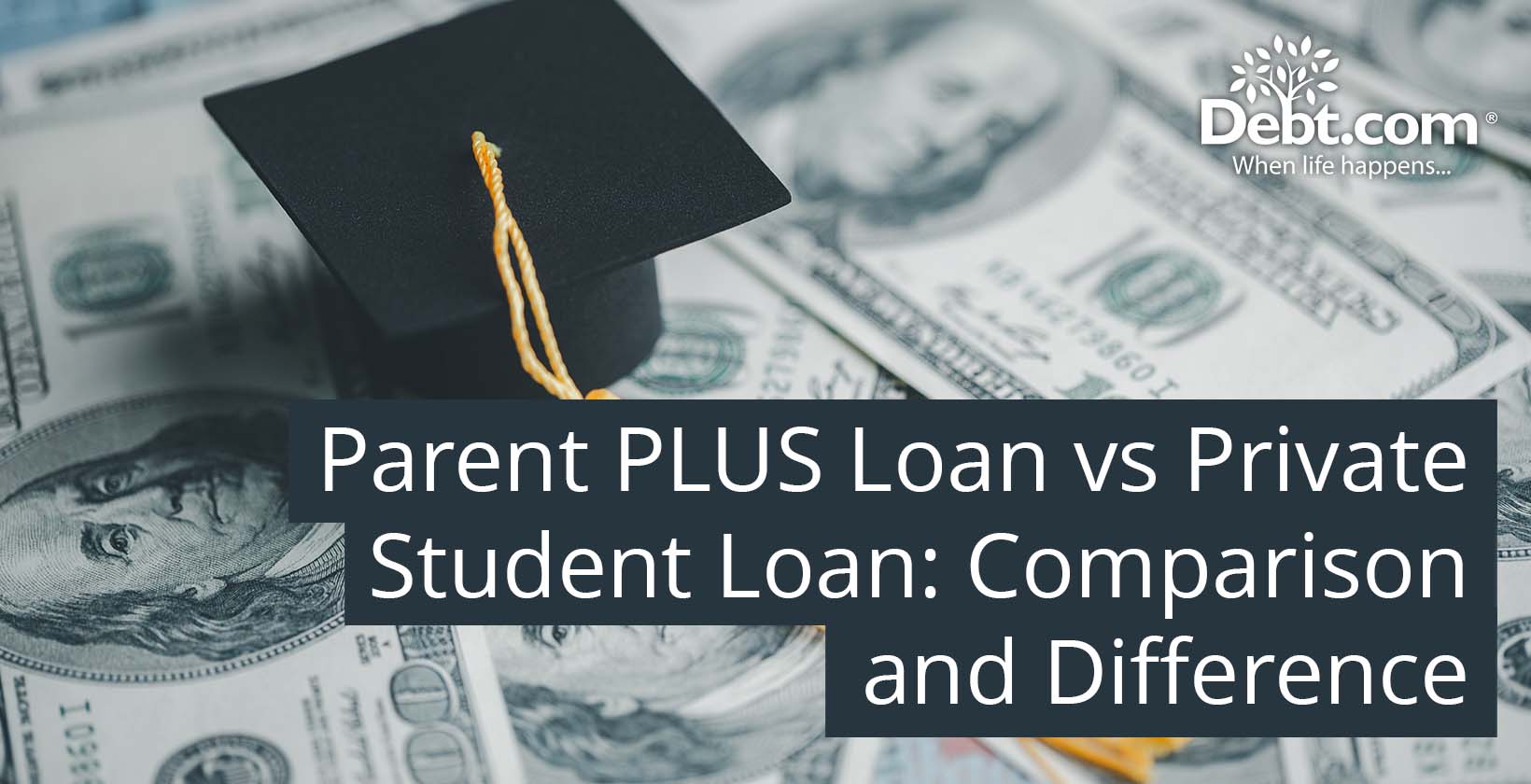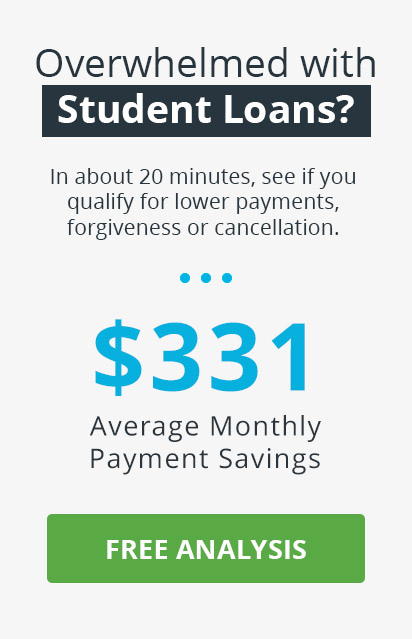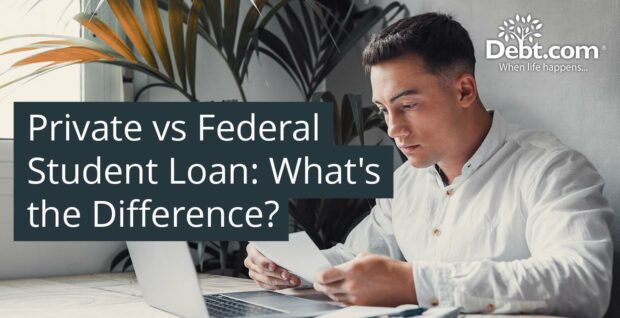
Comparing Parent PLUS Loans and private student loans determines the best fit for the family’s financial situation when considering financing options for higher education. Parent PLUS Loans and private student loans offer distinct advantages and come with their criteria and terms. Understanding the differences helps in making an informed decision.
Parent PLUS Student Loans are federal loans the U.S. Department of Education provides for parents of dependent undergraduate students. These loans have a fixed interest rate set annually by the federal government and require a basic credit check without considering the borrower’s credit score to determine the interest rate. Parent PLUS Loans include an origination fee, which adds to the cost of borrowing. These loans offer repayment options, including standard, extended, and graduated plans, with deferment available while the student is in school and six months after graduation. They provide access to federal protections and forgiveness programs, such as Public Service Loan Forgiveness (PSLF).
Private Student Loans are offered by private financial institutions like banks, credit unions, and online lenders. The interest rates for these loans are fixed or variable and are determined based on the borrower’s or co-signer’s creditworthiness. Students require a co-signer to qualify if they have limited credit history or income. Private student loans do not charge origination fees, and their repayment terms vary widely depending on the lender. Private loans offer flexible repayment options, including interest-only payments while the student is in school, deferred payments, or immediate repayment.
The key considerations are the interest rate and associated fees when comparing Parent PLUS Loans vs. private loans. Parent PLUS Loans come with a higher fixed interest rate and an origination fee, making them more expensive in the long run than private student loans for borrowers with excellent credit who secure lower rates. Private student loans are tailored to specific needs with various repayment plans and no federal protections or forgiveness options.
Choosing between parent PLUS loans and private student loans depends on several factors, including the borrower’s credit history, financial stability, and need for federal loan protections. Evaluate the loan options thoroughly to identify the best college loans. Parent PLUS Loans provide stability with fixed rates and federal benefits, making them a safer choice for borrowers who need such protections. Private student loans offer lower costs and greater flexibility for borrowers with strong credit and a co-signer.
Table of Contents
What is a Parent PLUS Loan?
A Parent PLUS Loan is a federal student loan offered by the U.S. Department of Education. Parent PLUS Loan is available to parents of dependent undergraduate students to help cover the cost of their child’s education. The loan enables parents to borrow up to the full cost of their child’s college expenses minus any other financial aid received. It provides additional financial support when other aid forms, such as grants and scholarships, are insufficient.
Parents must meet specific eligibility criteria to qualify for a Parent PLUS Loan. The primary requirement is that the borrower must be the biological or adoptive parent of a dependent undergraduate student enrolled at least half-time in an eligible institution. The borrower must not have an adverse credit history. They are still qualified by obtaining an endorser with no adverse credit history or by documenting extenuating circumstances related to their credit if a parent has an adverse credit history.
Parent PLUS Loans feature a fixed interest rate the federal government sets yearly. Repayment for these loans begins immediately after the loan is fully disbursed. However, parents request a deferment while their child is in school and an additional six months after graduation. It allows parents to manage their finances while supporting their child’s education.
College loans for parents, like the Parent PLUS Loan, offer several repayment plans to accommodate different financial situations. These include standard, extended, and graduated repayment plans. Parents consolidate their Parent PLUS Loans into a Direct Consolidation Loan, lowering their monthly payments. However, borrowers need to understand that consolidating loans results in paying more interest over time.
How does a Parent PLUS Loan Work?
Parent PLUS Loan works by providing parents of dependent undergraduate students with the necessary funds to cover the cost of their child’s college education. The U.S. Department of Education issues the loan. It allows parents to borrow up to the full cost of attendance at an eligible institution, minus any other financial aid received by the student. Parent PLUS Loan is designed to fill the gap between the financial aid package and the total educational expenses.
The loan funds are disbursed directly to the school in two installments once approved to cover tuition, fees, room, board, and other education-related expenses. Any remaining funds after the school expenses are covered are given to the parent or student for other costs, such as books and supplies. The interest rate for a Parent PLUS Loan is fixed and determined annually by the federal government.
Repayment of a Parent PLUS Loan begins immediately after the loan is fully disbursed. However, parents request a deferment while their child is enrolled at least half-time and for six months after the child graduates or drops below half-time enrollment. Various repayment plans are available, including standard, extended, and graduated ones, allowing parents to choose the one that best fits their financial situation. Parents consolidate their Parent PLUS Loans into a Direct Consolidation Loan for lower monthly payments, though increasing the total interest paid over the life of the loan.
What are the Eligibility Criteria for Parent PLUS Loans?
The Eligibility Criteria for Parent PLUS Loans are listed below.
- Parent-Borrower Requirements: A borrower must be a dependent undergraduate student’s biological or adoptive parent. A stepparent applies if their information is included in the FAFSA.
- Student Requirements: The student must be a dependent undergraduate student enrolled at least half-time in an eligible institution. The student must meet the general eligibility requirements for federal student aid, such as being a U.S. citizen or eligible non-citizen and having a valid Social Security number.
- Credit Check: The parent must not have an adverse credit history, which includes certain negative marks such as bankruptcy, foreclosure, tax lien, wage garnishment, or a default determination in the last five years. Parents with adverse credit histories still qualify if they obtain an endorser without an adverse credit history or document extenuating circumstances related to their credit.
- Financial Need: The loan amount must not exceed the cost of attendance minus any other financial aid received.
- Filing FAFSA: The Free Application for Federal Student Aid (FAFSA) must be completed and submitted for the academic year for which the loan is requested.
- Citizenship and Residency: The parent and the student must be U.S. citizens or eligible non-citizens with a valid Social Security number.
What is the Application Process for Parent PLUS Loans?
The application process for Parent PLUS Loans has three? steps. First, complete the Free Application for Federal Student Aid (FAFSA) for the relevant academic year. Completing the FAFSA is a mandatory step, as it determines the student’s eligibility for federal financial aid, including grants, work-study, and loans. It provides the necessary information for the school to calculate the total cost of attendance and the expected family contribution.
Parents must apply for the Parent PLUS Loan through the Federal Student Aid website (studentaid.gov) after submitting the FAFSA. The step involves providing personal and financial information and authorizing a credit check. The credit check is crucial to the application process, ensuring the parent has no adverse credit history.
Second, sign a Master Promissory Note (MPN). The MPN is a legal document in which the parent agrees to the terms and conditions of the loan and promises to repay the borrowed amount. Signing the MPN is a binding agreement and a crucial part of the loan process.
Lastly, the loan funds are disbursed directly to the student’s school after completing the MPN. These funds cover tuition, fees, room, board, and other education-related expenses. The remaining amount is given to the parent or student for other educational expenses, such as books and supplies, if any funds remain after these costs are covered. The step ensures that the student’s financial needs are met, allowing them to focus on their education without financial stress.
The U.S. Department of Education offers Parent PLUS Loans to assist parents in financing their dependent undergraduate student’s education. These loans cover the gap between the total attendance cost and the student’s financial aid package.
Understanding and following these steps in the application process ensures that parents effectively secure a Parent PLUS Loan to support their child’s college education. The structured approach helps parents navigate the complexities of federal student loans and provides the financial support necessary for their child’s academic success.
What are the Advantages of Parent PLUS Loans over Private Student Loans?
The Advantages of Parent PLUS Loans over Private Student Loans are listed below.
- Fixed Interest Rates: Parent PLUS Loans offer a fixed interest rate set by the federal government, providing stability and predictability in monthly payments.
- Flexible Repayment Options: Repayment plans are available, including standard, extended, and graduated plans, allowing parents to choose one that best fits their financial situation.
- Deferment Options: Parents request a deferment while their child is enrolled at least half-time and for six months after graduation, delaying the repayment start date.
- No Prepayment Penalties: Parent PLUS Loans do not have prepayment penalties, allowing parents to pay off the loan early without additional fees.
- Loan Forgiveness Programs: Parent PLUS Loans are eligible for federal loan forgiveness programs under certain conditions, such as Public Service Loan Forgiveness (PSLF).
- Simplified Application Process: The application process for Parent PLUS Loans is straightforward and does not require a co-signer, unlike many private student loans.
- Borrower Protections: Federal loans offer more generous borrower protections, such as options for forbearance and deferment during financial hardships, than loans offered by private lenders.
- Consistent Approval Criteria: The eligibility criteria for Parent PLUS Loans are standardized and do not vary based on the borrower’s credit score beyond the requirement of not having an adverse credit history.
- Unified Loan Servicing: Parent PLUS Loans are serviced by federal loan servicers, providing a consistent and regulated servicing experience.
- Income-Contingent Repayment (ICR): Parents who consolidate their Parent PLUS Loans into a Direct Consolidation Loan become eligible for the Income-Contingent Repayment plan, which adjusts monthly payments based on income and family size.
What is a Private Student Loan?
A private student loan is offered by private financial institutions such as banks, credit unions, and online lenders to help students and their families cover the costs of higher education. Private student loans are provided by private lenders based on the borrower’s creditworthiness and financial history, unlike federal student loans, which the government funds.
Lenders offer flexible repayment options, such as deferment while the student is still in school, but these terms are more standardized than federal loans. Private student loans do not offer the same borrower protections, such as income-driven repayment plans and loan forgiveness programs, that are available for federal student loans.
Interest rates on private student loans are competitive for borrowers with excellent credit, but they fluctuate with market conditions if the loan has a variable rate. Interest begins to accrue when the loan is disbursed because the government does not subsidize private student loans, even while the student is still in school.
Choosing a private student loan involves careful consideration of the terms and conditions, including interest rates, repayment options, and any fees associated with the loan. Borrowers must compare offers from multiple lenders and understand the long-term financial implications before committing to a private student loan. Private student loans help cover educational expenses when federal aid and other economic resources are insufficient.
How does a Private Student Loan Work?
Private student loan works by providing financial assistance to students and their families to cover educational expenses not met by federal financial aid. Private financial institutions, such as banks, credit unions, and online lenders, offer these loans based on the borrower’s creditworthiness rather than financial need.
The application process for a private student loan begins with selecting a lender and submitting an application. The application requires detailed information about the student’s and co-signer’s financial history and credit profile. Students need a co-signer, such as a parent or guardian with a strong credit history, to qualify for the loan or secure a more favorable interest rate. The lender conducts a credit check to determine eligibility and set the loan’s interest rate.
Private student loan funds are disbursed directly to the educational institution to cover tuition, fees, room, board, and other related expenses. Any remaining funds are provided to the student for additional expenses, such as textbooks and supplies, after these costs are paid. Private student loans require the borrower to begin making payments while in school, and lenders offer deferment options until after graduation.
Interest rates on private student loans are either fixed or variable. Fixed interest rates remain the same throughout the life of the loan, providing predictable monthly payments. Variable interest rates fluctuate with market conditions, leading to changes in the monthly payment amount. The interest on private student loans begins to accrue when the funds are disbursed if payments are deferred until after graduation.
Repayment terms for private student loans vary by lender and range from five to twenty years. Lenders offer flexible repayment options, such as interest-only payments while the student is in school or a grace period after graduation. However, private student loans do not offer the same borrower protections and benefits as federal loans, such as income-driven repayment plans and loan forgiveness programs.
What are the Eligibility Criteria for Private Student Loans?
The Eligibility Criteria for Private Student Loans are listed below.
- Credit History: A strong credit history is required. Students need a co-signer with a strong credit history to qualify.
- Income: The borrower or co-signer requires proof of stable income. Lenders have minimum income requirements.
- Enrollment Status: Students must be enrolled at least half-time in an eligible educational institution. Lenders require enrollment in a specific type of degree program.
- Citizenship or Residency: A borrower must be a U.S. citizen or eligible non-citizen. Lenders offer loans to international students with a U.S. co-signer.
- Age: Borrowers must be at least 18 or the age of majority in their state.
- School Certification: The loan amount must be certified by the educational institution to ensure it does not exceed the cost of attendance.
- Debt-to-Income Ratio: Lenders assess the debt-to-income ratio of the borrower or co-signer to determine loan eligibility.
- Academic Progress: Lenders require a minimum GPA or satisfactory academic progress.
- Loan Purpose: The loan must be used for education-related expenses, such as tuition, fees, room, board, and supplies.
Eligibility criteria vary for each lender. Different lenders have additional requirements or varying standards for credit history, income levels, and other factors. Borrowers must review the specific criteria of each lender they are considering.
How to Apply for Private Student Loans?
To apply for private student loans, there are six steps to follow. First, research and compare various lenders to find the loan that best suits borrowers’ needs. Second, select a lender and gather all necessary documents, including proof of income, identification, and financial information for you and your co-signer. Third, complete the lender’s online application form, providing accurate and detailed information about your financial status, school, and the loan amount needed. Fourth, apply and authorize a credit check to assess the borrower’s creditworthiness and that of their co-signer. Fifth, carefully review the loan terms, including the interest rate, repayment schedule, and fees. Lastly, sign the loan agreement and complete any additional requirements, such as entrance counseling or signing a promissory note. The lender then disburses the funds directly to the educational institution to cover the tuition and other expenses. Keep copies of all loan documents and stay informed about the repayment responsibilities.
What are the Advantages of Private Student Loans over Parent PLUS Loans?
The Advantages of Private Student Loans over Parent PLUS Loans are listed below.
- Lower Interest Rates: Private student loans offer lower interest rates than Parent PLUS Loans’ fixed rate for borrowers or co-signers with excellent credit.
- No Origination Fees: Private lenders do not charge origination fees, while Parent PLUS Loans have an origination fee that increases the overall cost of the loan.
- Flexible Repayment Terms: Private student loans offer a variety of repayment terms and plans, including interest-only payments or deferred payments while the student is in school.
- Choice of Fixed or Variable Rates: Borrowers choose between fixed and variable interest rates with private loans, allowing them to select an option that best suits their financial situation and risk tolerance.
- Eligibility for International Students: Private lenders provide international students with creditworthy U.S. co-signer loans, whereas Parent PLUS Loans are only available to U.S. citizens or eligible non-citizens.
- Co-Signer Release Options: Private lenders offer co-signer release options after the borrower makes a certain number of on-time payments and meets credit requirements, providing more flexibility for co-signers.
- Individualized Customer Service: Private lenders provide personalized customer service, which benefits borrowers needing specific assistance or having unique financial circumstances.
What are the Similarities between Parent PLUS Loans and Private Student Loans?
The Similarities between Parent PLUS Loans and Private Student Loans are listed below.
- Purpose: Cover educational expenses for higher education.
- Credit Check: A credit check is required for approval.
- Repayment Responsibility: The borrower is responsible for repaying the loan.
- Interest Accrual: Interest accrues from the time of disbursement.
- Fixed or Variable Rates: Offer options for fixed or variable interest rates (private loans).
- Deferment Options: Potential for deferment while the student is in school.
- Loan Limits: Cover up to the total cost of attendance.
- Application Process: Require detailed financial and personal information.
- Disbursement: Funds are disbursed directly to the educational institution.
- Eligibility Criteria: Require meeting specific eligibility criteria, including enrollment status.
What are the Differences between Parent PLUS Loans and Private Student Loans?
The difference between Parent PLUS Loans and private student loans depends on various factors, including interest rates, fees, repayment options, and eligibility criteria. Private student loans offer more competitive rates and flexible repayment plans for borrowers with excellent credit, while Parent PLUS Loans provide federal borrower protections and straightforward consolidation options. Understanding each loan type’s specific terms and conditions is crucial for making an informed decision.
Parent PLUS Loans interest rate is fixed and set annually by the federal government. The student loan interest rate tends to be higher than rates available for borrowers with excellent credit who apply for private student loans. Private student loan interest rates are either fixed or variable and vary based on the lender and the borrower’s or cosigner’s creditworthiness. Private loans offer more competitive rates for borrowers with strong credit histories.
Parent PLUS Loans and private student loans cover up to the total cost of attendance, including tuition, fees, room, board, and other educational expenses. However, Parent PLUS Loans include an origination fee, a percentage of the loan amount, increasing the loan cost. Private student loans do not charge origination fees, making them less expensive in terms of upfront costs.
Parent PLUS Loan repayment begins immediately after disbursement, and deferment options are available while the student is in school and for six months after graduation. Parent plus loan repayment options include standard, extended, and graduated plans. Private student loan repayment options, include interest-only payments while the student is in school, deferred payments, or immediate repayment. The flexibility of repayment plans varies widely among private lenders.
Parent PLUS Loans are consolidated into a Direct Consolidation Loan, which offers access to income-driven repayment plans, such as Income-Contingent Repayment (ICR). Private student loans do not provide federal consolidation options but are refinanced through private lenders, securing a lower interest rate or better repayment terms based on creditworthiness.
Parent PLUS Loans do not require a co-signer since the parent is the primary borrower. Private student loans require a co-signer for students with limited credit history or income. A co-signer with strong credit helps the borrower secure a lower interest rate.
Parent PLUS Loans are available for parents of dependent undergraduate students. Undergraduate, graduate, and professional degree students use private student loans. Private lenders offer specialized loans for specific degree types, such as medical or law degrees, which include unique terms and benefits tailored to the fields.
Eligibility for Parent PLUS Loans requires a credit check to ensure the borrower has no adverse credit history. Each lender determines private student loan eligibility criteria, which include a more comprehensive evaluation of credit history, income, and other financial factors. Borrowers and co-signers with higher credit scores and stable incomes qualify for better rates and terms.
Is Forgiveness available for both Parent PLUS Loans and Private Student Loans?
No, forgiveness is not available for private student loans. Parent PLUS Loans are forgiven under specific federal programs. For example, the Public Service Loan Forgiveness (PSLF) program allows forgiveness of the remaining loan balance after 120 qualifying monthly payments while working full-time for a qualifying employer, such as a government or non-profit organization. Imagine that a Parent PLUS Loan is consolidated into a Direct Consolidation Loan. The borrower becomes eligible for Income-Contingent Repayment (ICR), which has a parent student loan forgiveness component after 25 years of qualifying payments.
Private student loans do not offer student loan forgiveness programs. Private financial institutions issue these loans, and the lender sets their repayment terms and conditions. The loans lack the standardized forgiveness options and borrower protections federal programs provide. Borrowers of private student loans must rely on refinancing, negotiation with lenders, or other financial strategies to manage their loan repayment.
How to Decide between Parent PLUS Loans and Private Student Loans?
To decide between Parent PLUS Loans and private student loans, there are six steps to follow. First, assess creditworthiness and financial situation. Evaluate the credit history and financial stability of the parent and student. Parent PLUS Loans require a basic credit check but do not use credit scores to determine the interest rate. Private student loans depend heavily on the borrower’s or co-signer’s credit score. Private loans offer better rates and terms for borrowers with excellent credit, while Parent PLUS Loans are more accessible for borrowers with creditworthiness concerns.
Second, compare interest rates and fees for both loan options. Parent PLUS Loans have a fixed interest rate set by the government and include an origination fee. Private student loans have fixed or variable rates, depending on the lender and borrower’s credit profile, and lack origination fees. Calculate the total cost of borrowing, including interest and fees, to make an informed decision.
Third, evaluate repayment options. Parent PLUS Loans offer standard, extended, and graduated plans, plus deferment options while the student is in school and for six months after graduation. Private student loans provide various repayment options, including interest-only, deferred, or immediate repayment, with flexibility varying by lender. Choose the repayment plan that best fits the family’s financial situation and long-term goals.
Fourth, investigate eligibility for loan forgiveness programs. Parent PLUS Loans qualify for federal forgiveness programs like Public Service Loan Forgiveness (PSLF) and Income-Contingent Repayment (ICR) if consolidated. Private student loans do not offer forgiveness options. Parent PLUS Loans are better when pursuing a public service career or benefiting from federal forgiveness.
Fifth, consider the need for a co-signer. Determine if a co-signer is needed. Parent PLUS Loans do not require a co-signer, as the parent is the primary borrower. Private student loans require a co-signer for students with limited credit history or income. A co-signer with strong credit secures better terms and lower interest rates. Assess the availability and willingness of a potential co-signer before deciding.
Lastly, review the loan terms and conditions. Carefully review the terms and conditions of both loan options. Understand the repayment schedule, deferment options, late payment penalties, and other stipulations the lender sets. Comparing these details help identify challenges or benefits for each loan type. Families make an informed decision between Parent PLUS Loans and private student loans by following these steps, ensuring they choose the option that best fits their financial needs and educational goals.
When to Choose Parent PLUS Loans?
Choose Parent PLUS Loan when preferring the things listed below.
- Limited Credit History: The parent has a limited or less-than-excellent credit history, as Parent PLUS Loans have more lenient credit requirements than private student loans.
- No Co-Signer Available: A co-signer is not available or willing to support a private student loan application.
- Federal Loan Protections: Access to federal loan protections, such as deferment, forbearance, and eligibility for Public Service Loan Forgiveness (PSLF), is desired.
- Fixed Interest Rate: A fixed interest rate set by the government that provides predictable monthly payments is preferred.
- Loan Forgiveness Programs: There are plans to pursue a career in public service or benefits from federal loan forgiveness programs.
- Repayment Flexibility: Various federal repayment plans, such as standard, extended, or graduated plans, along with deferment options while the student is in school and for six months after graduation, are preferred.
- Simplified Application Process: A straightforward application process without requiring extensive credit checks or variable interest rate considerations is desired.
- Full Cost Coverage: Full cost of attendance, including tuition, fees, room, board, and other educational expenses, must be covered.
When to Choose Private Student Loans?
Situations when choosing Private Student Loans are appropriate are listed below.
- Excellent Credit History: The borrower or co-signer has an excellent credit history, qualifying for lower interest rates and better loan terms.
- No Need for Federal Loan Protections: The borrower does not require federal loan protections like deferment, forbearance, or loan forgiveness programs.
- Competitive Interest Rates: The borrower seeks lower interest rates than Parent PLUS Loans with a strong credit profile.
- No Origination Fees: The borrower wants to avoid origination fees, which are common with Parent PLUS Loans but absent in private student loans.
- Repayment Flexibility: The borrower prefers various repayment options, including interest-only payments while in school, deferred payments, or immediate repayment.
- Co-Signer Availability: A co-signer with a strong credit history is available and willing to help secure better loan terms.
- Customizable Loan Features: The borrower wants access to features like interest rate discounts for autopay, loyalty discounts, or other borrower benefits offered by private lenders.
- Faster Disbursement: The borrower needs a quicker application and approval process, leading to faster disbursement of funds.
- International Student Eligibility: The borrower is an international student with a U.S. co-signer, making private student loans a viable option.
- Specific Loan Terms: The borrower prefers loan terms tailored to specific degree types, such as medical or law degrees, which some private lenders offer.
What are the Best Private Student Loans?
The best Private Student Loans are listed below.
- Sallie Mae: Sallie Mae offers undergraduate, graduate, and professional student loans. It provides flexible repayment options, including deferred and interest-only payments while in school. There are no origination fees or prepayment penalties. Sallie Mae offers a multi-year advantage, allowing students to apply once and access loans for multiple years.
- College Ave: College Ave offers loans for undergraduate, graduate, and career training programs. Customizable repayment plans with options for in-school and post-school payments. Competitive interest rates with no origination or prepayment fee and provides an instant credit decision.
- Ascent: Ascent offers co-signed and non-co-signed loans for undergraduate and graduate students. It provides various repayment options, including deferred, interest-only, and fixed payments. It offers 1% cash back upon graduation without application, origination, or early repayment fees. Non-co-signed loans are based on creditworthiness, school, and program.
- SoFi: SoFi offers loans for undergraduate, graduate, and professional degrees and parent loans. It offers competitive fixed and variable interest rates with no application, origination, or prepayment fees, and it provides career coaching and financial advice. SoFi is one of the best private student loans because it offers flexible repayment options, including deferred and interest-only payments.
- Earnest: Earnest offers loans for undergraduate and graduate students. It provides customizable repayment terms, including bi-weekly payment options. There are no fees for application, origination, or prepayment. Earnest has competitive interest rates with a precision pricing model that allows borrowers to customize their monthly payments and loan terms.









